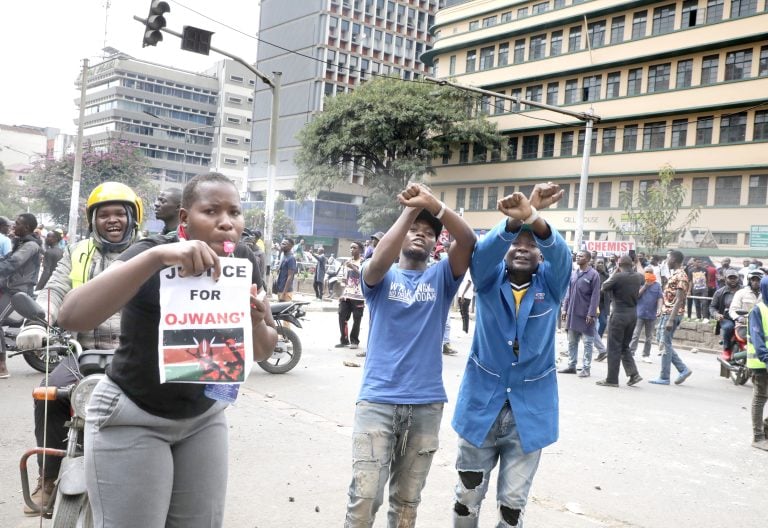Civic anger productive only if it turns into voting
By Hansen Owilla, June 16, 2025Kenya’s current wave of anger, particularly among Gen Z and civic voices, reflects a complex intersection of unresolved grievances, State overreach, and symbolic political moments. Recent weeks have revealed a sharp escalation in public outrage through several key indicators.
The return of online mobilisation and hashtag activism strongly correlates with active street protests across major Kenyan towns and cities. This resurgence is exacerbated by atrocities committed by individuals working for or against the regime, such as the callous murder of Albert Ojwang.
Last year, well-coordinated online mobilisation by tech-savvy Gen Z activists effectively ended the tough stances from both sides of the political divide – “there will be no handshake” and “Ruto must go” – as the political class brokered what has proven a near-futile truce through the broad-based government.
The truce remains futile because the basic problems that sparked protests and civil disobedience persist, and outrage now clearly targets the entire political class.
Hashtags like #JusticeForAlbert, #RejectFinanceBill2025, and #GenZRevolution have trended across social media, likely continuing as clarity on Ojwang’s killing remains elusive.
Disturbingly, politicians are making a mockery of the situation by mining political capital from the Ojwang family’s tragedy. Parading Ojwang’s father as a poster boy for their supposed philanthropy, complete with media appearances and likely unfulfilled promises, is sickening.
What happened to doing good without cameras?
Politics, as they say, is about perception, and these politicians are milking this news-making tragedy that has thrust a family into the public spotlight.
They forget that, given the mounting anger and mobilisation gaining traction, their cheap political capital from such insensitive stunts might prove worthless as public rage targets the entire political class.
The speed and scale at which Kenyans, especially Gen Z, mobilise online indicate deep emotional engagement and lost trust in formal State institutions and political leaders.
These digital spaces amplify dissent while organising protests, disseminating evidence of police brutality and political complicity, and directly calling out officials by name.
Across social media, young Kenyans use memes, protest art, spoken word, and street murals to express rage and political awareness. This creative resistance indicates anger running deeper than mere frustration.
It shows a shift toward a values-based resistance culture, especially among urban youth. The symbolism of June 25 is being repackaged not just as memory, but as a call to moral rebellion.
The recent history of State repression, particularly through the police, seems unable to deter genuine dissent as Gen Z-led protests have erupted following the latest extrajudicial killing.
A clip of an eloquent young Gen Z woman has reached millions with her undefeatable rallying call: she has nothing to lose except her miserable life.
These protests have little political party affiliation, a sign of independent, issue-based anger that naive politicians exploiting a grieving family fail to appreciate.
When a generation is galvanised by having only their “miserable” lives to lose, police brutality becomes futile and political power hangs by a thread.
One hopes this anger, outrage, and creative resistance will crystallise into mobilised voting.
The writer is a media studies researcher.
More Articles

